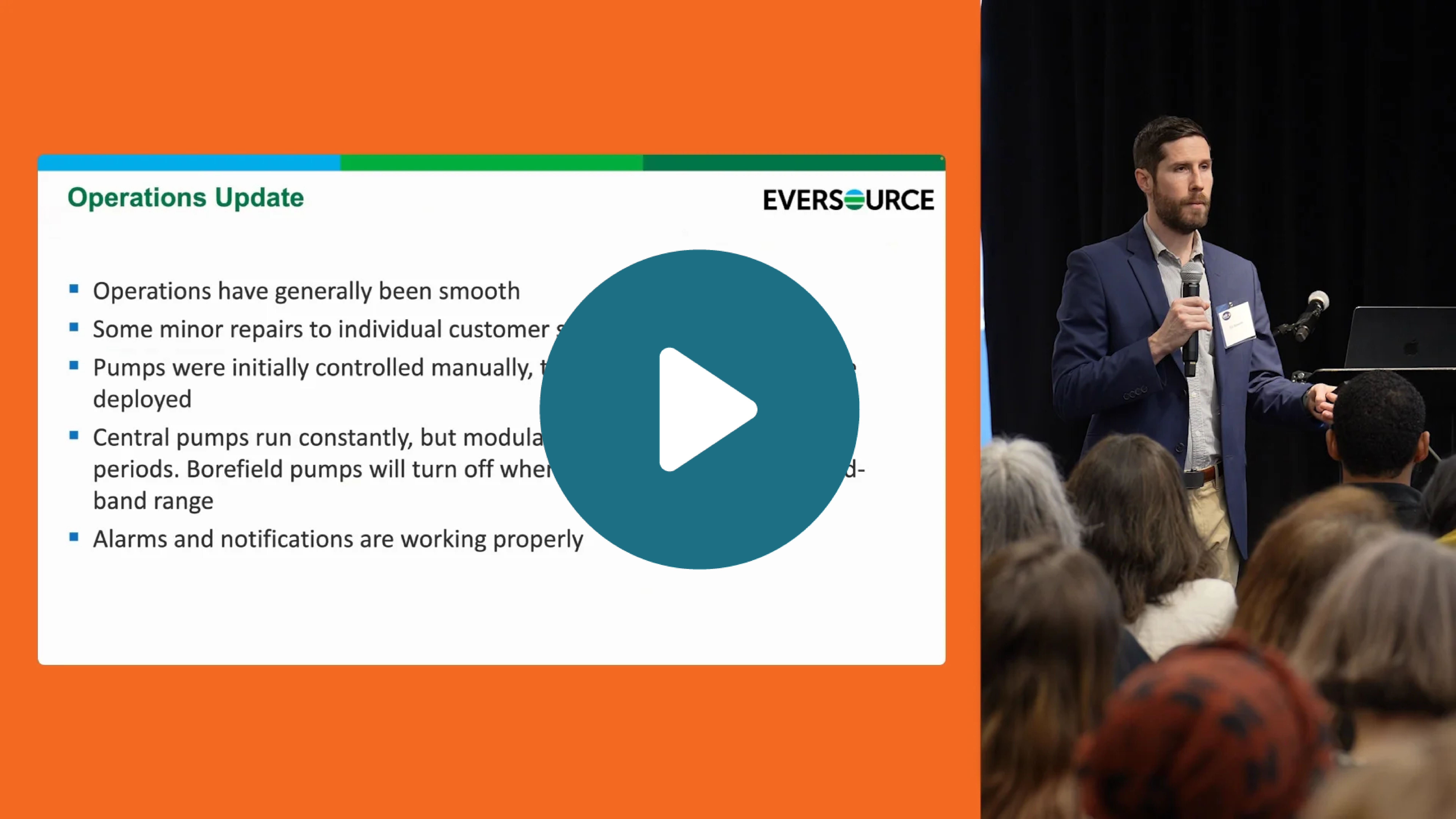Learning From the Ground Up
Resources
HEET's Tools:
Tools from BUSPH:
- Dashboard for equitable implementation of networked geothermal in MA
- Geothermal equity analysis dashboard
Tools from our LeGUp collaborators:
“Massachusetts is founding the utility of the future, which is both exciting and a great responsibility. Through LeGUp, HEET is committed to ensuring that we have the science, data, and transparency we need to grow networked geothermal ."
— HEET Executive Director Zeyneb Magavi
LeGUp publications & dashboards
Publications
- An Efficient Annual-Performance Model of a Geothermal Network for Improved SystemDesign, Operation, and Control
- The First Open-Source Database for Geothermal Networks
- A Definitional Taxonomy for (Geo)Thermal Energy Networks (Poster)
- Thermal Response Test of Geothermal Boreholes Using Distributed Fiber Optic Sensing [Framingham Pilot]
Dashboards produced by BUSPH
- Dashboard for equitable implementation of networked geothermal in MA
- Geothermal equity analysis dashboard
Resources from our partners
- MassDEP's Massachusetts Geothermal Data Viewer
- Oak Ridge National Laboratory's Ground Source Heat Pump Screening Tool
Background
HEET formed the Learning from the Ground Up (LeGUp) research team to learn as much as we can from the first utility geothermal networks in the country. The LeGUp research supplements the utilities’ own project measurements and verifications, providing additional data, research, and science beyond what is covered by standard utility and regulatory procedure.
The project is funded by a $5 million grant from the Massachusetts Clean Energy Center, thanks to a generous allocation for this purpose by the Massachusetts Legislature.
The LeGUp team will develop an open-source digital twin, or model, of the technology based on data collected at multiple sites. This model will allow optimization of design and operations for both the first projects and for the industry as it grows. The model and the aggregated data will also allow a series of scaling impact studies that include technical potential and economic, health, equity, and environmental impacts.
The team will share key learnings, best practices, and determine a standard normalized dataset for the cross-comparison of projects. This dataset will be published in an open data bank to help accelerate the gas-to-geo transition.
Research areas and activities
- Design, build and launch an open-source databank for geothermal network projects
- Design, build and refine a digital twin that will help optimize system design and operations
- Assess cost drivers and economic barriers to adoption
- Determine density and locational thresholds for deployment, allowing for a data-based statewide potential study.
- Data-driven recommendations for scaling geothermal networks nationally
- Design and launch a feasibility study grant program to help communities move geothermal network projects forward
- Recommendations for prioritizing benefits to low-income and environmental justice communities.
- Evaluation of the impacts of the gas-to-geo transition on equity, human health, greenhouse gas emissions, and the environment.
LeGUp research team participants
- National Renewable Energy Laboratory (NREL)
- Lawrence Berkeley National Laboratory (LBNL)
- University of California Berkeley
- Boston University
- Buro Happold Engineering
- Harvey Michaels of Massachusetts Institute of Technology
- Dr. Marcos Luna of Salem State University
In collaboration with:
- MassCEC
- National Grid Gas
- Eversource Gas

LeGUp Annual Meeting 2025
Session I: MA GEN Demonstration Projects Updates & Key Learnings

Speakers:
- Zeyneb Magavi, HEET
- Rep. Steve Owens, MA House of Representatives
- Overview of LeGUp - Isabel Varela, HEET (Moderator)
- Learnings from Framingham Projects - Eric Bosworth, Eversource
- Insights from the Franklin Field and Lowell Projects - Christopher English, National Grid
Session III: Kickstart Massachusetts: MA GEN Feasibility Studies

Speakers:
- The Kickstart MA Program: Angie Alberto-Escobar, HEET (Moderator)
- Margaret Peard, Lexington
- Talia Fox, Arlington
- Garrett Anderson, Somerville
- Diego Sanchez, Gloucester
- Nathan Ives, Salem
Session IV: Advancing GENS with Data Integration, Models and Tools

Speakers:
- Rebecca Brenneis, HEET (Moderator)
- GENs and Ecology - Nathan Phillips, Boston University
- Informational Resources Available for Planning Your GEN Project - Joe Cerutti, MassDEP
- Energy Systems Dashboards for Massachusetts - Jonathan Buonocore, Boston University
- GSHP Screening Tool - Xiaobing Liu, Oak Ridge National Lab
Session V: Advancing GENS with Data Integration, Models and Tools

Speakers:
- Eric Juma, HEET (Moderator)
- Smart Ground—Learnings from Borehole Temperature Measurements - Kenichi Soga, Soga Research Group, UC Berkeley
- A Techno-Economic Modeling Tool for GENs - Rebecca Barney, National Renewable Energy Laboratory
- An Open Source Databank for GENs - Isabel Varela, HEET
- Feasibility of GENs in MA & Future Impact Studies - Jason Masters, Buro Happold









